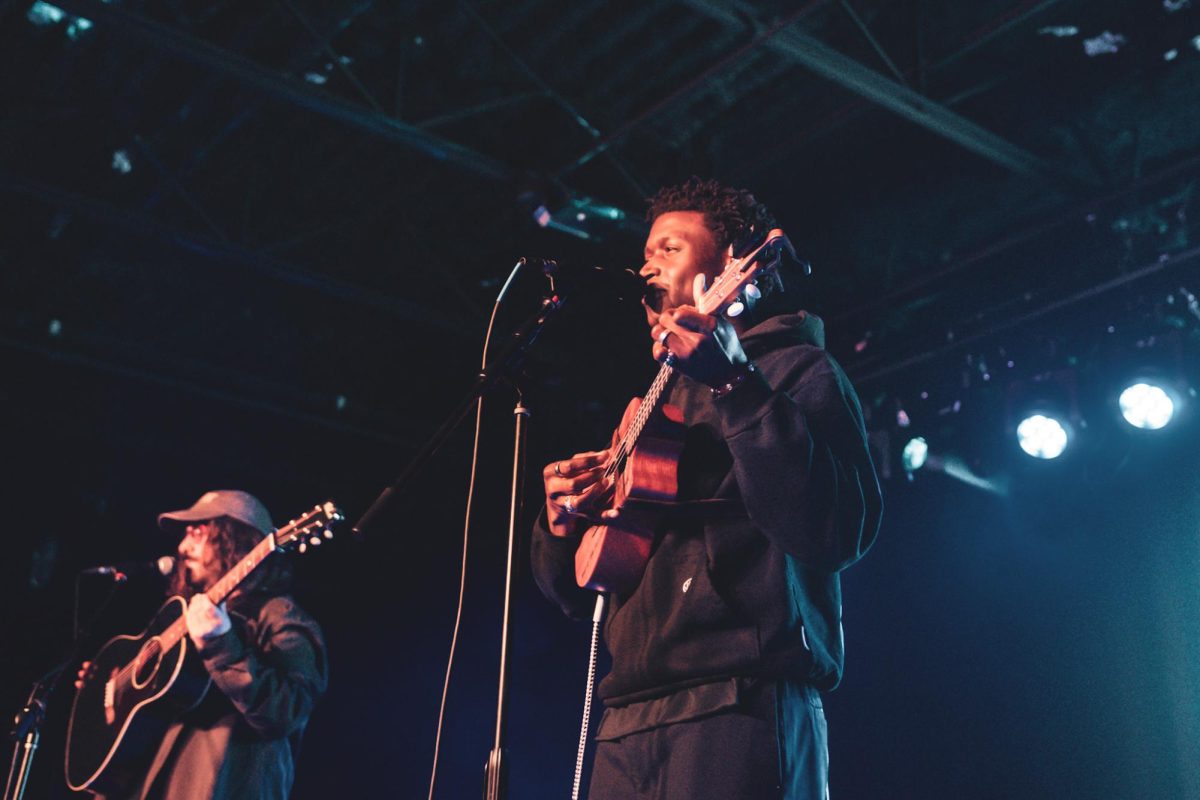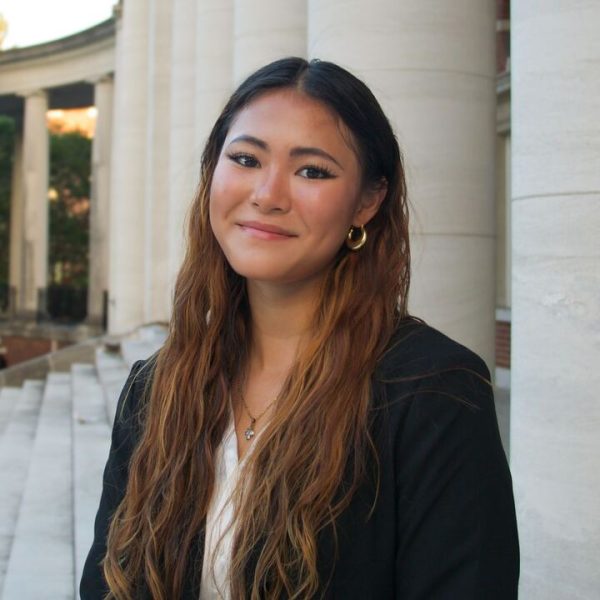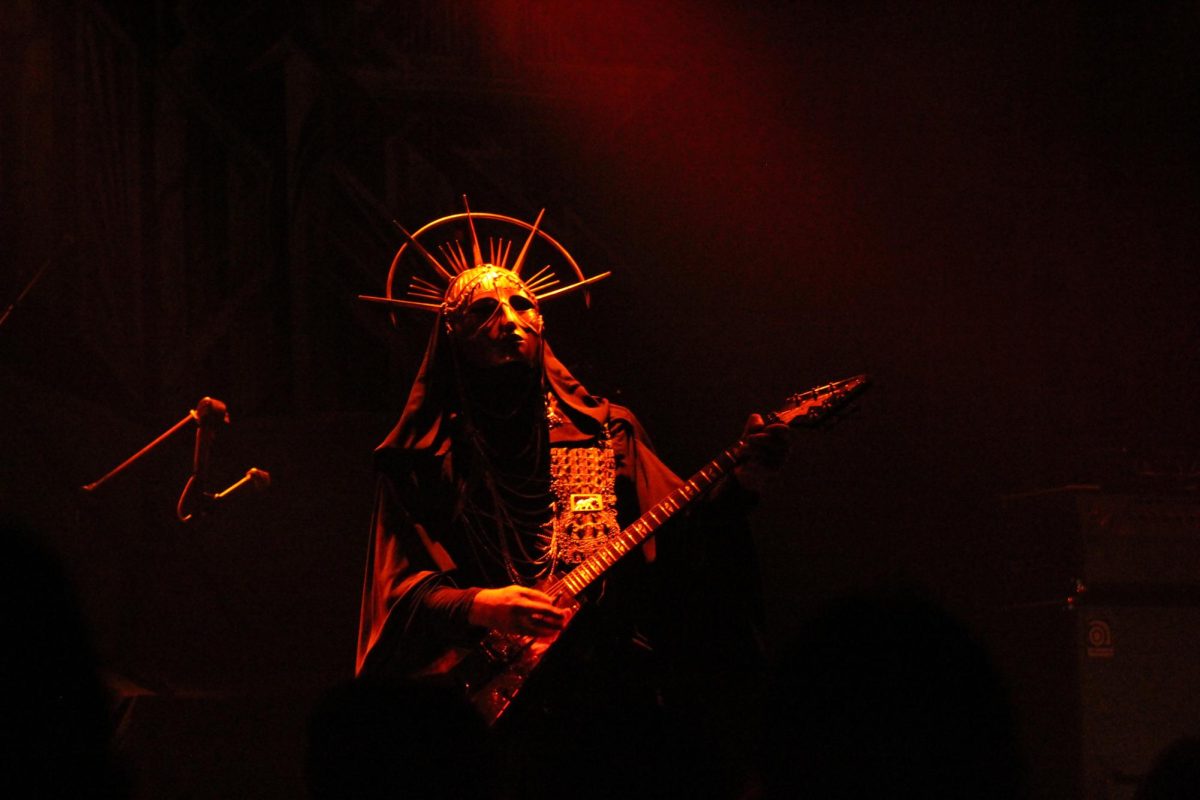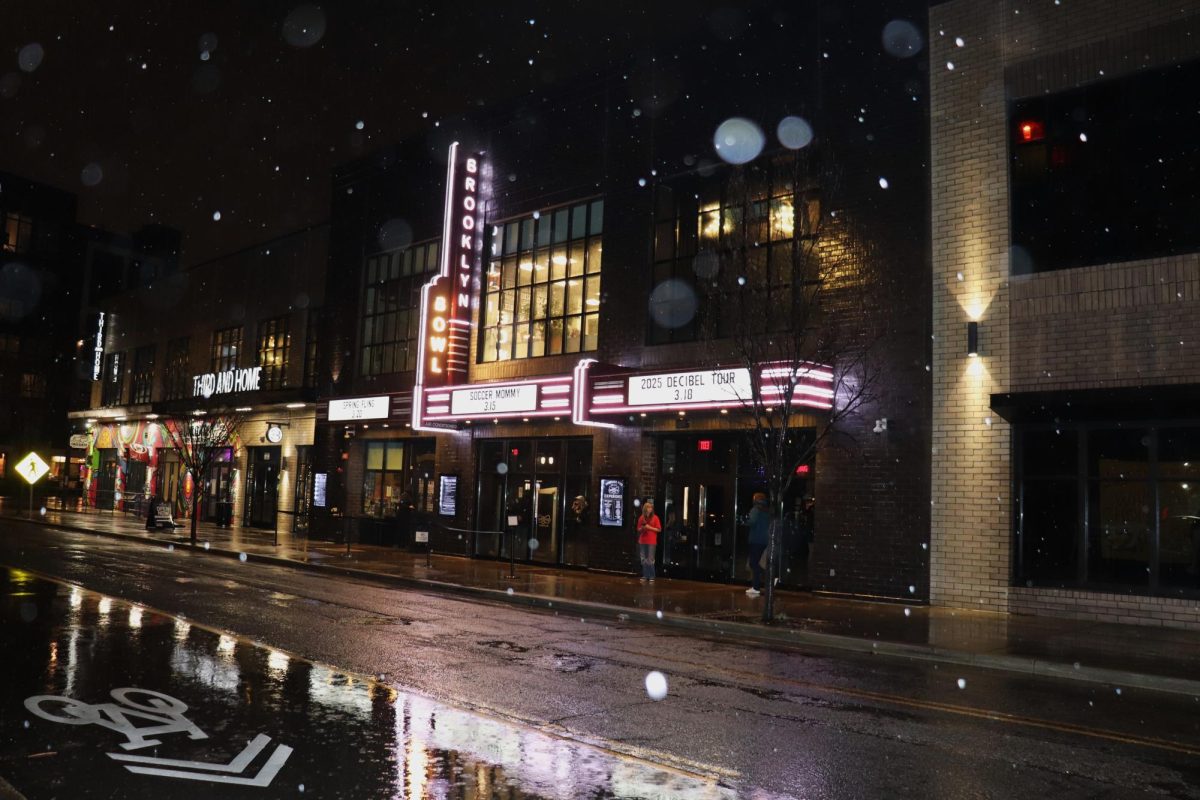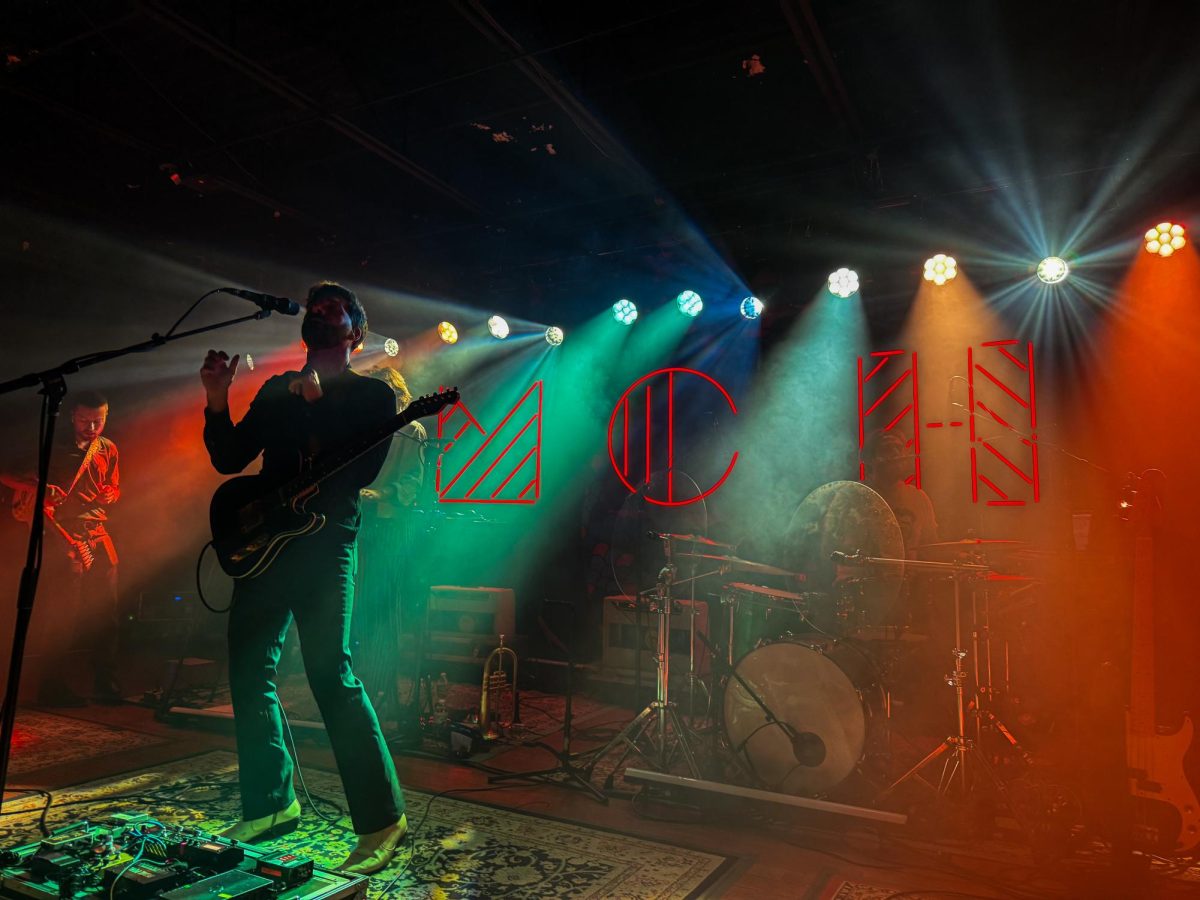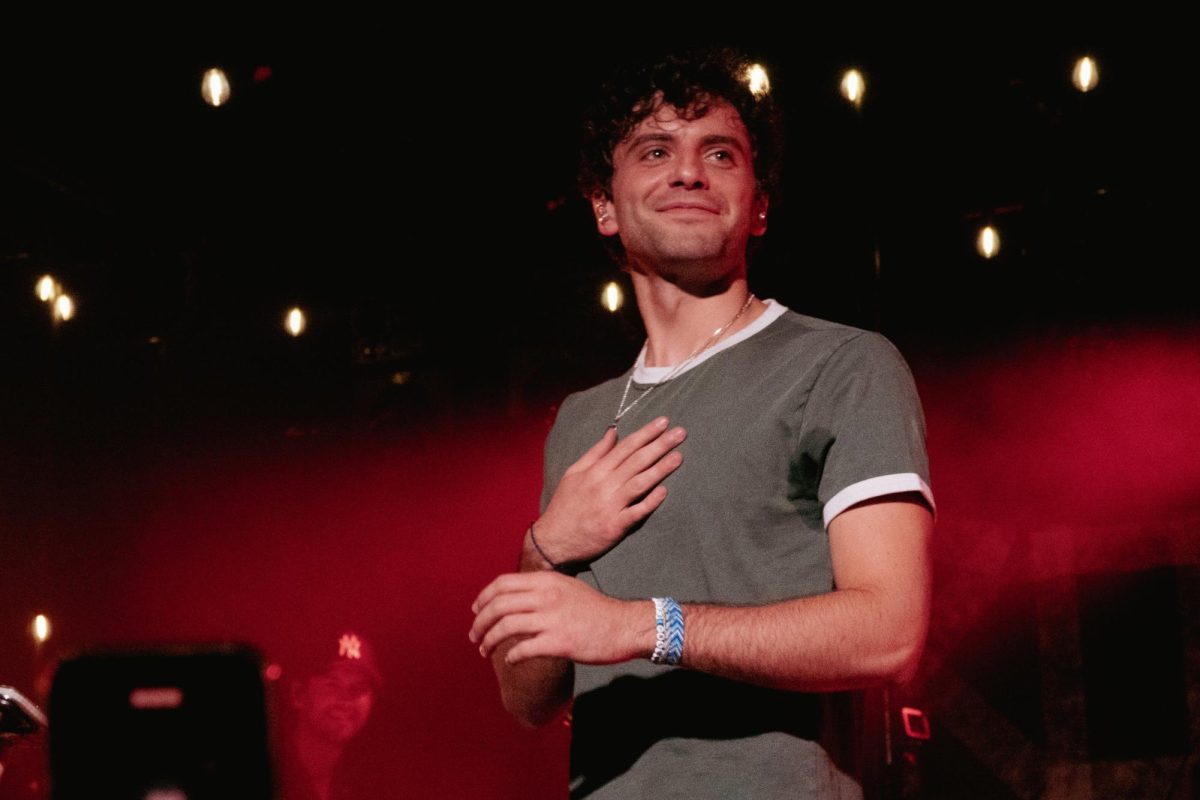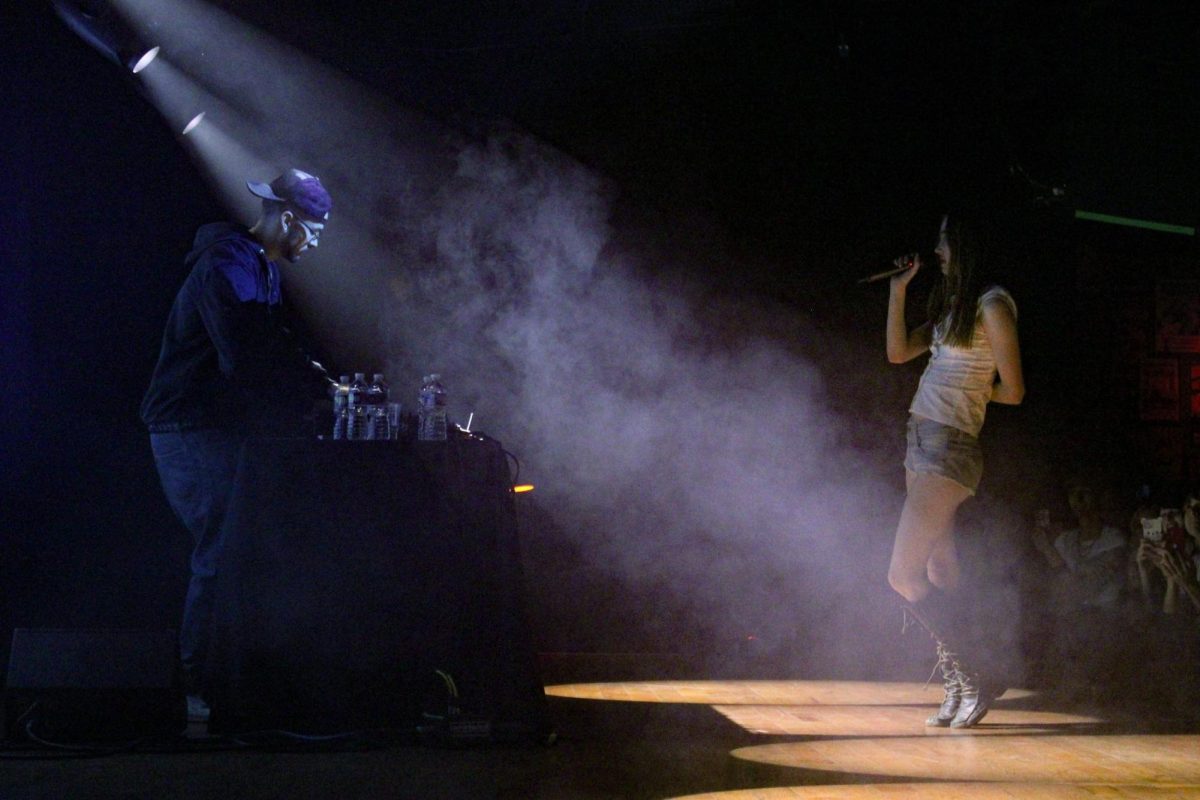There are concerts that entertain — then there are those that hold you, cradle you and, somehow, put you back together. Mon Rovîa’s performance at The Basement East on Jan. 31. was the latter.
I walked into the venue expecting a gentle folk set, maybe some soothing ukulele and guitar melodies to hum along to. What I left with was something far deeper, something that clung to me long after I stepped back into the night air.
The band Oliver Hazard opened the show. None of the members are named Oliver, but the trio stood together like old college friends. They brought the crowd in with an easy warmth, teaching us a call-and-response refrain, where they sang “anywhere you go” and the audience responded with “in this wild eye blue,” from their song “Wild Eyed Blue.”
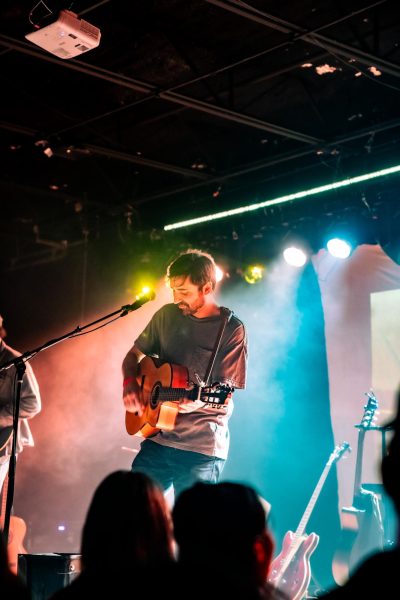
(Harmony Wang)
The exchange felt like a meaningful ritual, bringing the crowd together before Rovîa stepped on stage. Oliver Hazard’s last song, “Dandelion,” painted scenes of running through open fields in a carefree manner. The music was almost earthy, the kind that makes you want to roll down a car window or chase the sun. It set the tone of the evening perfectly: we were there to feel.
Then, Rovîa arrived.
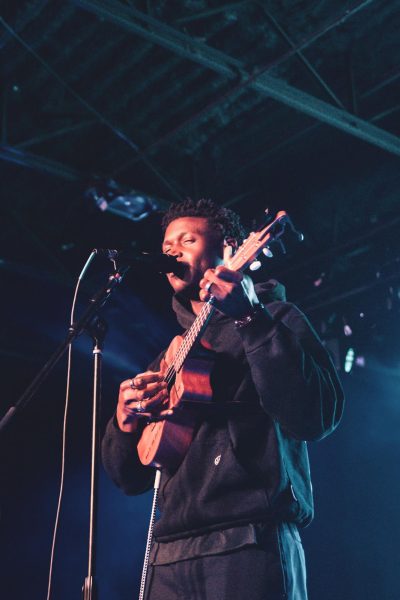
(Harmony Wang)
He doesn’t just play music; he opens up his soul and invites you inside for a viewing. And when you accept that invitation, you find yourself reflecting on your own story, too.
Born in Liberia and adopted by American parents during Liberia’s first civil war, Rovîa’s journey took him across continents — from West Africa to Montana, to the mountains of Tennessee and back to Liberia during its second civil war. Rovîa doesn’t tell these stories to make you feel sorry for him; he tells them because he knows everyone carries something that weighs them down. We all need a place to lay it down, even if just for a little while.
“Suffering is something you can choose the length and breadth of,” Rovîa said.
Those words hung in the air like a truth we had all been waiting to hear. We’ve all experienced hurt: school shootings, wildfires, wars. But Mon Rovîa reminded us that we get to decide how much power our suffering holds over us.
“Don’t fall in love with your sufferings,” Rovîa added.
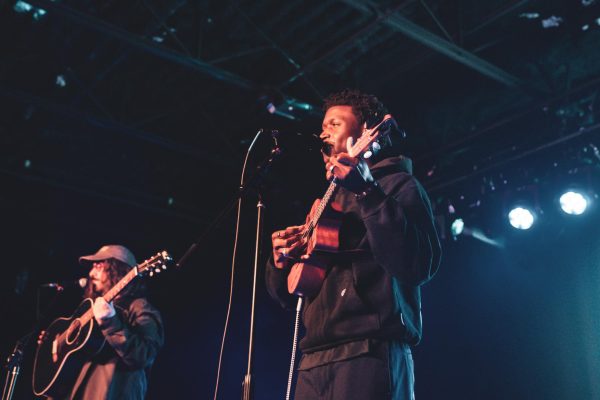
(Harmony Wang)
Next in the show, he played his song “crooked the road.” The chorus, made famous on TikTok, washed over the crowd.
“But if you’re leaving / Know I’ll stay beside that telephone line / And tomorrow / We might steal the sun from underneath our eyes,” Rovîa sang.
The crowd didn’t just sing along — it also sang out. It was like being freed of something heavy, like being understood and told it will all be okay.
Another song, “Winter Wash 24,” hit just as hard, but in a different way. Rovîa spoke about the feeling of scrolling through social media and seeing bombs falling on Gaza in one video and a cute dog in the next. He referred to that sensation as a jarring contrast of tragedy and normalcy — what he called “cognitive dissonance.” His music asks you to feel the pain of the world but to not get stuck in it. He asks you to feel first and then do something with those emotions.
Rovîa’s concert was more than just music — it was a collective exhale. It was a room full of strangers, all tending to their wounds with a little more care. Rovîa is an artist you need to know; not because he is rising in popularity rapidly, not because he will sell out bigger venues soon, but because his music will meet you wherever you are. When you need a break from the noise, when you need to feel human again, when you need someone to remind you that healing is possible — Mon Rovîa’s music will be there.

